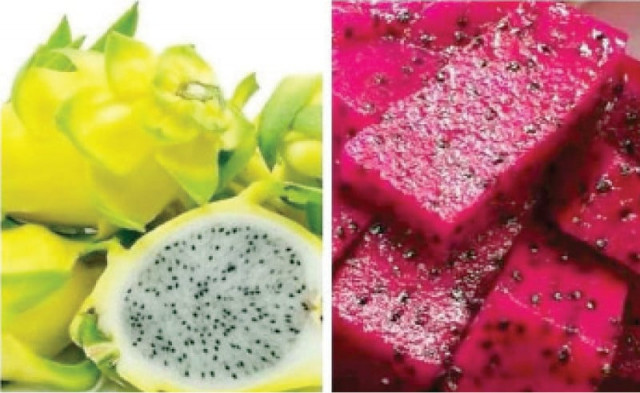Farmers push for dragon fruit cultivation
Say govt incentives could transform barren lands in Gadap into profitable farms

Progressive farmers urged the government to provide at least one acre of land to poor farmers in the Gadap area to grow dragon fruit. They argued that the country could become one of the top exporters due to suitable weather conditions, potentially earning substantial foreign exchange.
They suggested that the government give a couple of incentives to needy farmers, including a free piece of land up to one acre, installation of a small solar system, and borewell facilities. These farmers can help eliminate unemployment caused by continuous layoffs from the seven industrial zones of Karachi, where factories are not economically viable due to exorbitant energy costs and ill-advised government policies.
Thousands of acres of barren land in Gadap could be utilised to promote dragon fruit farming, one of the world’s most expensive fruits due to its health benefits and unique, sweet taste. Vietnam and Thailand are top exporters of the fruit, where almost all varieties grow year-round due to favourable weather conditions.
The coastal areas of Sindh and Balochistan, from Thatta through Karachi to Hub, Gadani, and other parts of Balochistan, are the most suitable places for farming dragon fruit. Farmers in these areas might get better returns compared to the rest of the country, as the 10 to 40-degree temperature range helps the plant grow well and quickly, providing an ideal climate that is neither too hot nor too cold.
Addressing concerns about global warming, they noted that the fruit season started this year about one and a half months late due to sweltering heat caused by climate change. Generally, the fruit plants produce flower buds in May, and after 45 days, the fruits ripen. The fruit retains three cycles in a season, from May to October-November.
Captain Rizwan Rehman, Progressive Grower Owner of Delicious Dragon Fruit Farm and Nursery, and practitioner of High Density Dragon Farming in Pakistan, said that due to quick growth, popularity, and health benefits, the fruit sold for Rs3,000 per kilo in the wholesale market three years ago but is now sold at Rs1,500 per kilo. A rooted plant is now purchased at Rs500 in the country, and a single plant can produce at least 20 cuttings/rooted plants in a year.
He said, “I have grown over 80 varieties and harvested many of them, including jam red, Morocco red, royal red, red ruby, Philippine purple, Vietnam red, Vietnam white, and the latest variety, ‘dark star,’ during the current season. These commercial varieties have sugar levels from 16 brix to 19.5 brix, making them as sweet as mangoes. I also grow new varieties like red velvet, Taiwan jumbo, Israeli yellow, and others. I am conducting research on better brix level varieties because people love to eat sweet fruits here.”



















COMMENTS
Comments are moderated and generally will be posted if they are on-topic and not abusive.
For more information, please see our Comments FAQ